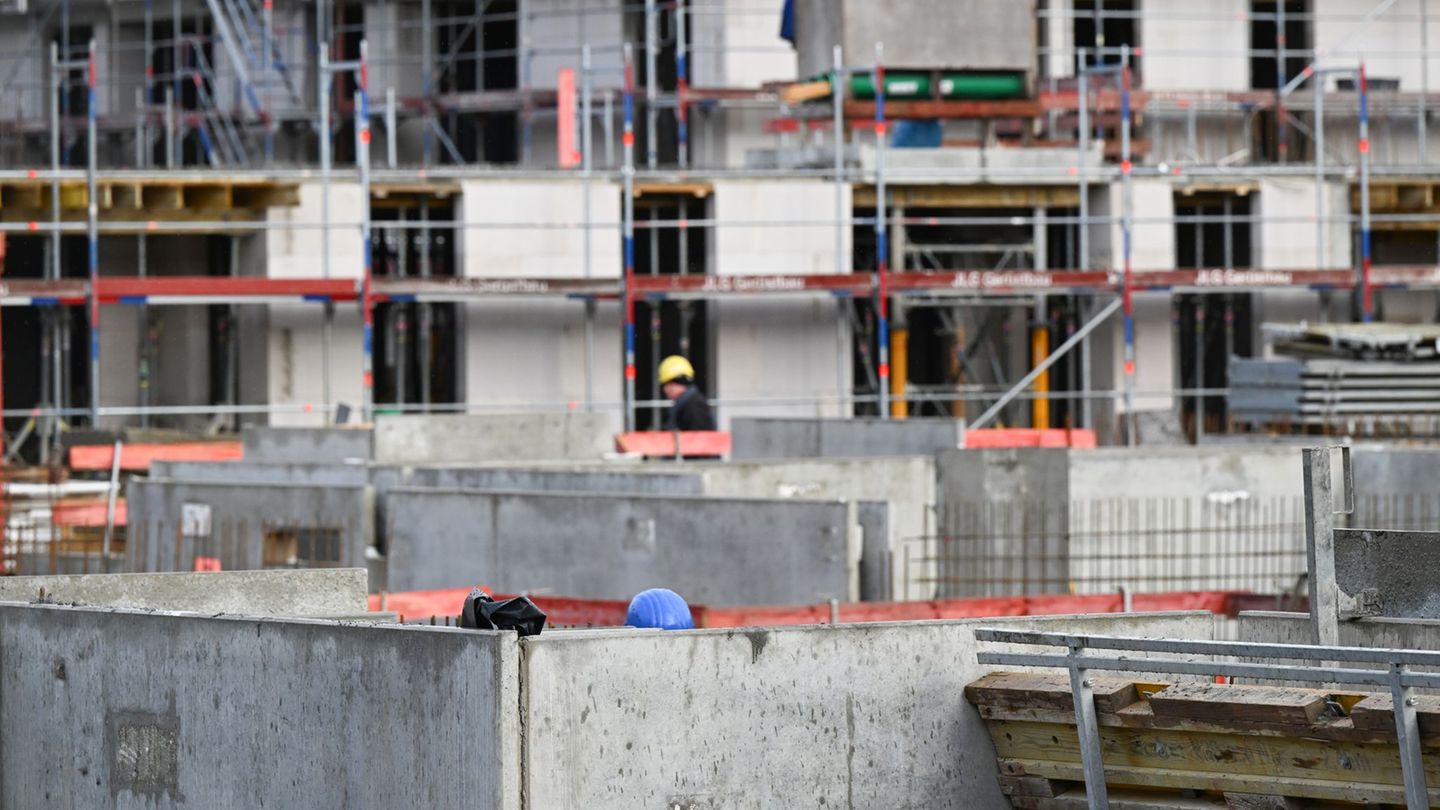Housing shortage in Germany
Study: Half a million apartments are missing nationwide
Copy the current link
For years, the federal government, the states and municipalities have hardly progressed in housing construction. Affordable living space is missing, especially in metropolitan areas. Several associations miss concrete goals in the party programs.
According to a current analysis, around 550,000 apartments are missing nationwide. The alliance of social living criticized that the parties had not yet presented any concrete construction goals to close this gap before the upcoming federal election. “Likewise, none of the parties make it clear for the financing of new living space,” said Robert Feiger’s head of the Bauen-Agrar-Umwelt industrial union. “This does not do justice to the dramatic” housing shortage “that we have in Germany.”
In addition to the IG Bau, the members of the alliance also include the German Tenants’ Association, Caritas Disabled Aid and Psychiatry, the German Society for Masonry and Housing and the Federal Association of German Building Office. The Pestel Institute has calculated the housing gap on behalf of the alliance on the basis of the 2022 census, a large-scale population survey.
Two million social housing necessary by 2030
While more than half a million apartments were missing in Germany, only 250,000 units were expected to be completed last year. In particular, affordable apartments were missing. “The study mentions at least 2 million social housing as a necessary target brand for 2030,” Feiger said. “That would mean almost a doubling of the social housing that exists today.” A residential construction economy program of the next federal government is therefore needed.
The outgoing federal government had set itself the goal of building around 400,000 new apartments in Germany every year, but had never reached it. So far, high construction prices and capacity bottlenecks of the construction industry have prevented a faster blast.
As a result of the census, the population in Germany was corrected by around 1.63 percent. Because there was also a downward correction in the determined number of apartments, but hardly anything has changed in the housing deficit in Germany, the authors conclude.
dpa
Source: Stern




